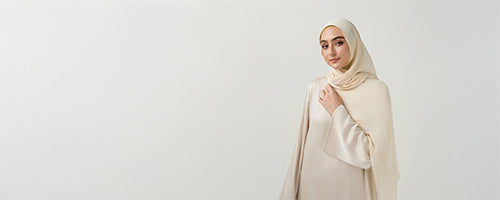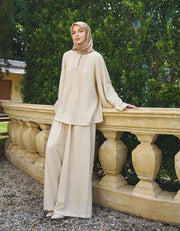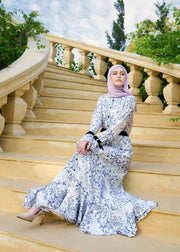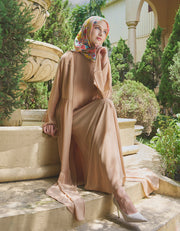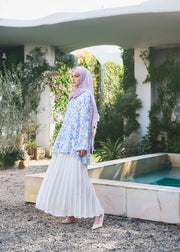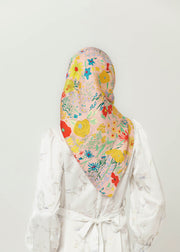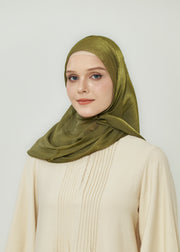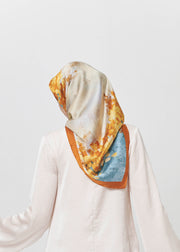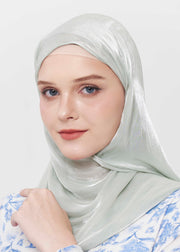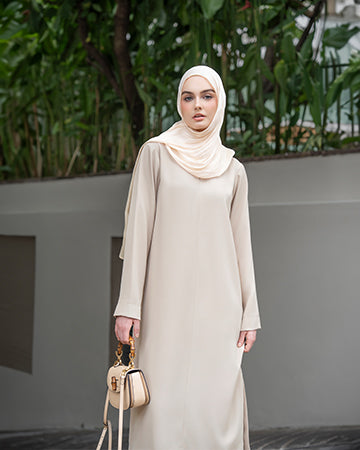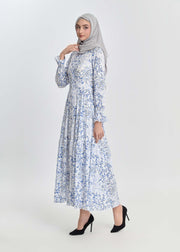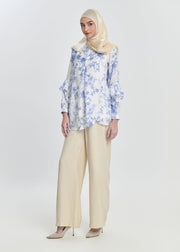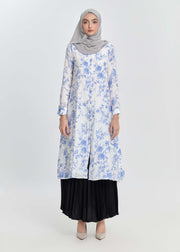Elegant Formal Islamic Wear for Special Occasions
When it comes to dressing for special events, formal Islamic wear offers the perfect blend of grace, modesty, and sophistication. Whether attending a wedding, Eid celebration, or formal dinner, Muslim women around the world seek elegant options that align with their values while reflecting their personal style. Let’s explore how formal Islamic wear has evolved, what defines elegance in modest fashion, and how to style these outfits beautifully.
Understanding the Essence of Formal Islamic Wear
Formal Islamic wear is more than just modest clothing—it’s a symbol of dignity and cultural pride. Rooted in faith, it reflects respect for Islamic dress principles while adapting to the sophistication expected at formal occasions. Long flowing abayas, maxi dresses, kaftans, and embellished jilbabs are common choices, offering full coverage without sacrificing elegance.
Designers today are merging traditional silhouettes with modern elements, using luxurious fabrics like chiffon, satin, crepe, and silk. The result is an aesthetic that feels regal yet refined—perfect for evening gatherings, galas, or religious ceremonies.
Key Features of Elegant Formal Islamic Wear
What makes formal Islamic wear truly elegant lies in its attention to detail. Here are the main elements to look for when choosing your outfit:
-
Fabric quality: Opt for lightweight yet structured materials that drape beautifully, such as crepe or silk-blend chiffon.
-
Color palette: Jewel tones like emerald green, navy blue, and deep maroon exude luxury, while pastels bring out a soft feminine charm.
-
Embroidery and embellishments: Intricate beadwork, sequins, or lace embroidery can transform a simple outfit into a statement piece.
-
Tailoring: Structured cuts around the shoulders or waist help maintain a polished look without compromising modesty.
Each element contributes to creating a balanced harmony between sophistication and simplicity—a core principle of Islamic formal fashion.

Key Features of Elegant Formal Islamic Wear
Styling Tips for Formal Islamic Wear
Styling formal Islamic wear is about achieving elegance without excess. Here are some practical ways to enhance your look:
-
Choose the right hijab fabric – For evening events, silk or satin hijabs elevate your appearance instantly. Coordinate the color with your outfit for a cohesive finish.
-
Add minimal accessories – A pair of statement earrings or a delicate clutch is enough. Avoid over-accessorizing, as the outfit should remain the highlight.
-
Layer gracefully – Lightweight capes or open abayas with embroidery details add movement and dimension.
-
Mind your footwear – Closed-toe heels or jeweled sandals complement formal modest wear beautifully, giving just the right amount of polish.
Confidence is key – The true elegance of Islamic fashion lies not in extravagance but in the way you carry it with grace and confidence.

Styling Tips for Formal Islamic Wear
Popular Types of Formal Islamic Wear
Here are some timeless pieces that never go out of style:
-
Formal Abayas: Often crafted from high-end fabrics and detailed with lace or embellishments, they’re perfect for both weddings and official gatherings.
-
Kaftan Dresses: Known for their flowy silhouettes, kaftans bring an effortless charm that suits festive occasions.
-
Evening Jilbabs: More structured and sleek, ideal for women seeking a minimalist look.
-
Two-Piece Modest Sets: Coordinated tops and skirts in luxurious materials make versatile options for semi-formal events.
These pieces not only fulfill the modesty requirement but also embrace fashion-forward creativity, showing how formal Islamic wear continues to evolve.
Why Elegant Formal Islamic Wear Matters
Wearing elegant formal Islamic wear is not merely about following dress codes—it’s a form of self-expression rooted in spirituality and cultural identity. It empowers Muslim women to participate in celebrations confidently while maintaining modesty and respect for their beliefs.
Furthermore, the global rise of modest fashion has made it easier than ever to find diverse designs that cater to different preferences—be it minimalistic, traditional, or contemporary. This inclusivity allows Muslim women everywhere to express elegance in their unique way.

Why Elegant Formal Islamic Wear Matters
Where to Shop for Formal Islamic Wear
When looking for authentic, high-quality formal Islamic wear, it’s important to consider brands that value both craftsmanship and modest design. Many modern labels now offer collections inspired by Middle Eastern elegance, combining luxurious detailing with comfortable silhouettes. Online modest fashion boutiques such as Minnaba provide curated selections of abayas, dresses, and hijabs crafted specifically for special occasions.
With thoughtful design and refined details, these pieces let you shine modestly and beautifully—making every event memorable.
Final Thoughts
Formal Islamic wear continues to redefine elegance by celebrating modesty and cultural heritage through fashion. From delicate fabrics to stunning embroidery, every detail tells a story of grace and refinement. Whether you prefer a modern abaya or a flowing kaftan, the right outfit can make you feel both confident and beautiful—inside and out.
Explore timeless collections at Minnaba, where elegance and modesty meet to help you dress gracefully for every special occasion.

